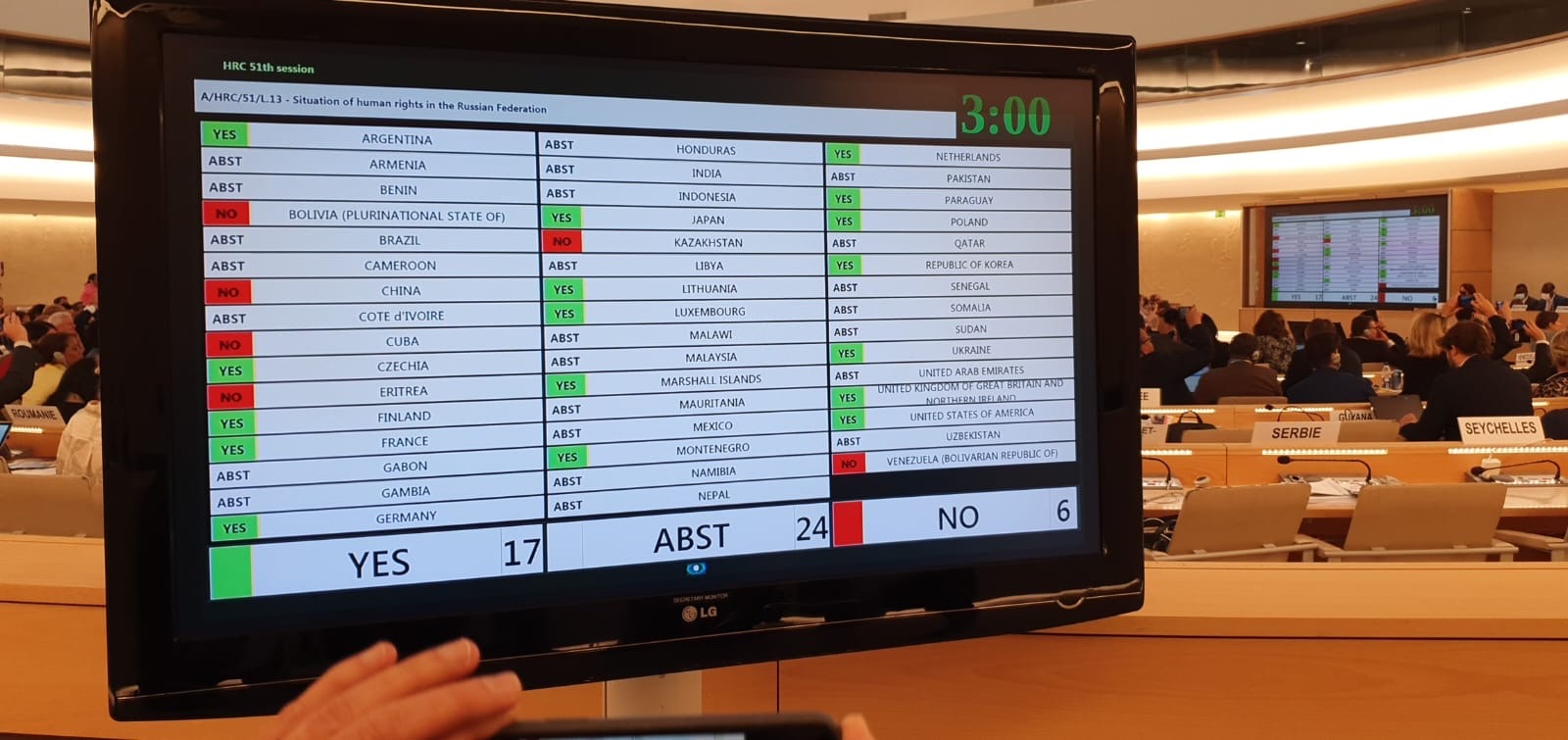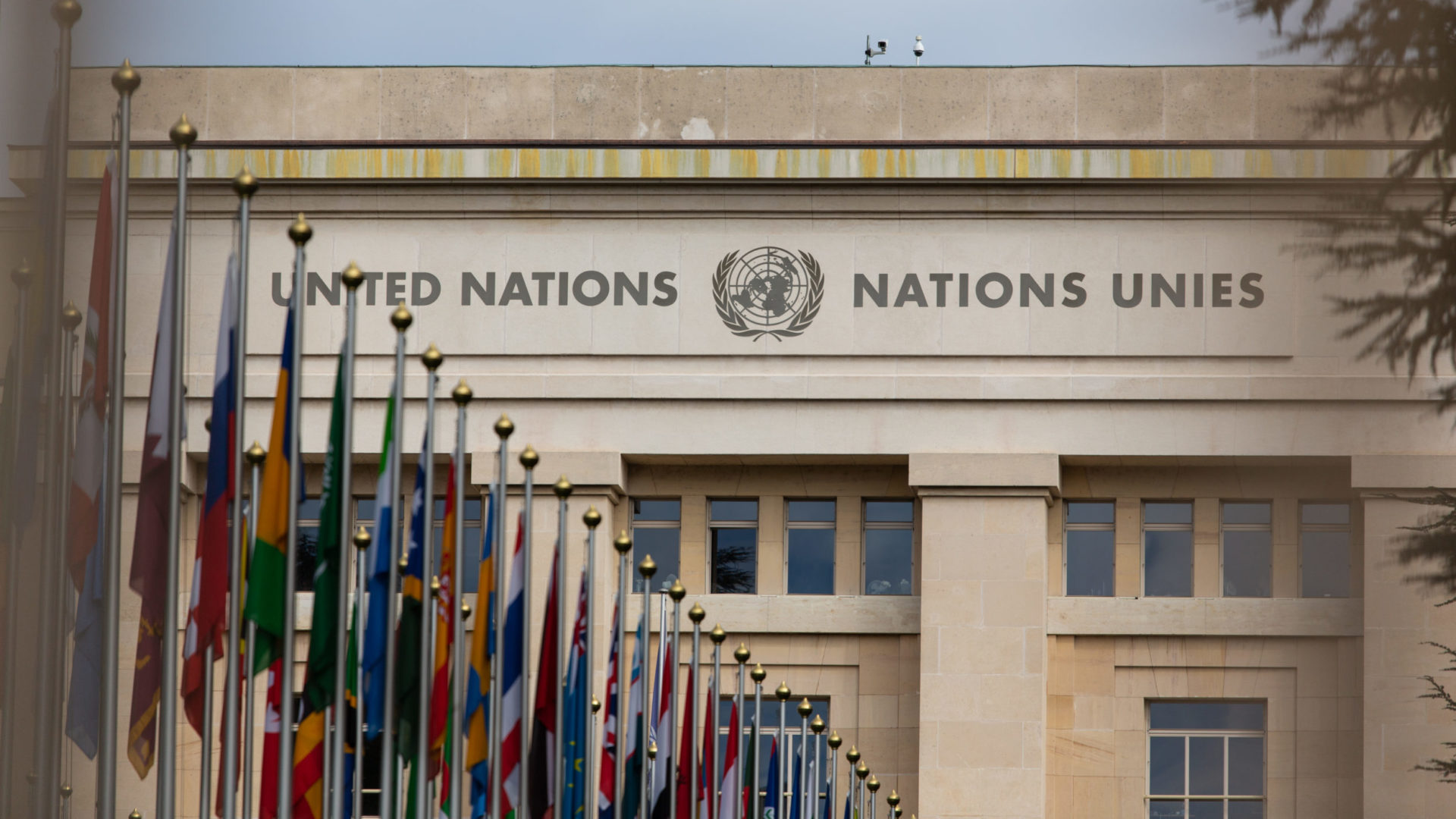In the early aughts, the UN Human Rights Commission voted down three resolutions calling on the Russian government to stop and prevent human rights violations in Russia’s North Caucasus region of Chechnya. Since that time, the Commission and its successor, the Human Rights Council, have failed to condemn Russian human rights violations or establish formal reporting mandates in response. Yet, no country should be immune from scrutiny of its alleged human rights violations and the Council upheld that principle in responding today to Russia’s deteriorating human rights crisis.
Sixteen years ago today, Russian journalist Anna Politovskaya was murdered in Moscow for what many believe was a reprisal for her investigative work on crimes committed in Chechnya. Since her murder in 2006, a growing chorus of Russian civil society and human rights defenders have demanded international action in response to the efforts by the Russian authorities to stifle dissent, attack human rights, and silence independent media and journalists. For more than a year, Russian human rights defenders have made trips across Europe to push for Council action. In a recent statement issued three weeks ago, dozens of Russian human rights organisations highlighted a deepening crisis and urged the establishment of a Special Rapporteur. Today’s action by the Council is a clear message to Russian civil society that they are not alone.
We are under no illusions that a Special Rapporteur will “solve” Russia’s immense human rights crisis. No single mandate or mechanism will accomplish this. However, it is important to recognise, as today’s action by the Council does, that Russian civil society and human rights defenders need international support and protection as they work to promote human rights inside of Russia. The Special Rapporteur will be a bridge between the international community and Russian civil society.
In the coming weeks, the Office of the High Commissioner for Human Rights (OHCHR) will accept nominations for the Special Rapporteur position and a group of State representatives from each UN regional group will short-list candidates. The Council will approve a candidate at its 52nd session in spring 2023. We encourage the High Commissioner and Council member States to consult widely with Russian and international civil society throughout this process.
For the mandate holder to be successful, the Special Rapporteur mandate must be resourced and equipped to both fulfil its formal reporting requirements to the Human Rights Council and UN General Assembly as well as to respond in a timely manner to existing and emerging human rights violations and trends inside of Russia. The Special Rapporteur will be one of very few independent international mandates focused on Russia and we know that timely responses to human rights violations are critical for those arbitrarily deprived of liberty and other victims of violations. We call on OHCHR to ensure that the mandate is sufficiently resourced in a timely manner.

Today’s action by the Council is an important step in addressing a deteriorating human rights situation in Russia. It is also a recognition that domestic human rights violations can create enabling environments which lead to crises beyond a country’s borders. Indeed, two decades of attacks on human rights defenders and independent media as well as bans on peaceful protest and arrests of dissenting and opposition voices allowed the Russian authorities to launch an unprovoked attack on Ukraine. But, today’s action must be seen only as a first step and we call on the Council to maintain a fixed view on Russia and to take all necessary steps to ensure that Russian civil society and human rights defenders remain connected to the international community.





